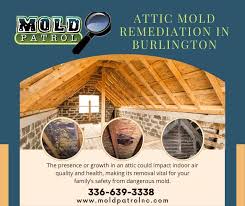Which Weather Mold Levels Are on Highest?
If you have mold allergies it is important to know the time of year when mold levels are on highest. In humid summers, mold spores are at their peak. However, there are ways to minimize your exposure to these allergens. For example, you can keep your windows and doors shut.
Pollen peaks in late March
People with allergies might be thrilled to see warmer weather return when winter is turning into spring. However, the change in the seasons can also bring the start of allergies. Some people find relief will not arrive until the autumn months. The pollen season can change between years, and the timing of peak pollen seasons depends on the weather and climate patterns. A wet and cold spring, for instance, can delay the beginning of tree pollen season and also overlap with grass pollen season.
The peak pollen levels for species of trees usually occurs during March, and are present through April. Data collection should be done in school during at most two weeks. Four weeks is better. In this way, you'll get the most complete picture of the pollen season. Pollen levels from ragweed typically increase in the early fall and peak in mid-September. After that, the levels decrease slowly after that. However, pollen levels can remain high until the beginning of October.
Tree pollen is the most common kind of allergen. However, grass pollen may also be an issue. This can be alleviated by limiting your outdoor activities. Avoid exposure to pollens by closing windows during the peak of the season. Be aware of insect bites and stings when you are allergic.
In humid summers, mold spores reach its peak
The growth of mold is more noticeable in humid areas. This can trigger increased symptoms for people suffering from allergies and asthma. There are many ways you can avoid being exposed to indoor mold. The first is to keep your windows shut at late at night. This is the ideal environment for mold growth.
Mold spores are released in the air by fungi that live in decomposing plant matter. People who spend long periods of time outdoors may also be exposed mold spores through gardening, farming, or hiking in the woods. Mold is most commonly associated with autumn, however it can also cause allergies in the indoors. Mold thrives in moist and warm regions following the heavy rainfall.
Studies have shown that mold counts in Austin are particularly high during summer, when temperatures and summer rain are at their highest. The Allergy and Athma Association found that the air contained 27,262 spores per cubic centimeter that fall into the 'High' category. The levels are much higher than the average for Austin at this time of the year.
The number of pollens affect allergy symptoms
Avoid outdoor activities during the morning and in late afternoon as pollen counts increase. This will help to avoid allergy symptoms. Also, you should restrict your outdoor activities, such as walking, during times of high pollen levels. Even though pollen counts are the highest during the morning and afternoon, they decrease towards the end of every day.
If you reside in an area with high humidity and high pollen counts Use masks for pollen to protect yourself from exposure to allergens. Avoid the practice of raking leaves or hanging your clothes outdoors. To lower the amount of pollen in your home, you can use an air conditioner if you don't possess one.
Pollen counts are determined by measuring the amount of grains of pollen that are present in the air. These particles are made from grasses and trees and weeds. People who are allergic to pollen can be affected by a higher pollen count. Low pollen counts may affect only seasonal allergy sufferers. The pollen count is determined by the local pollen reporting stations. The amount of pollen in the air is crucial because it will determine the degree of your allergy symptoms.
Tips to limit exposure to pollen and mold
If you're allergic to pollen or mold You should take specific measures to minimize exposure. For instance, you must use a pollen filter when you are outdoors. It is also recommended to avoid things like raking leaves outside or drying clothes. It is also recommended to make sure that windows are closed whenever possible.
Allergies can be caused by mold or pollen spores. The symptoms can last for up to a year. The spores, small fungi that live in the soil and on plants are very rare. Similar to pollen, they release floating spores that float in the air. In spring the spore count of outdoor mold rise. They're at their highest in the summer, while they are lowest in winter.
The best way to avoid allergic reactions is to take steps to minimize your exposure to mold as well as pollen. If you live in a dry or hot climate, it's possible to reduce your exposure. Also, you can apply antihistamines or an anti-pollen mask while you're indoors.
|
Phone +13366393338
|
|
| Address: 4175 Burch Bridge Rd, Burlington, NC 27217, United States |

